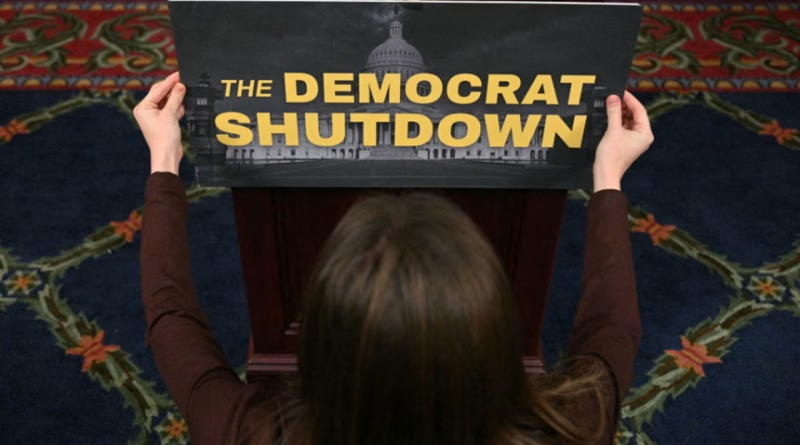For nearly a month, the United States has been operating without vital economic data as a prolonged government shutdown stalls the release of key federal reports — leaving policymakers, businesses, and investors in the dark.
The shutdown has already delayed statistics on employment, trade, and retail sales, while the next major casualty — gross domestic product (GDP) figures for July to September — will not be published as scheduled on Thursday. Only limited staff have been recalled to compile inflation data, necessary for calculating Social Security adjustments.
The political deadlock between Republicans and Democrats shows no sign of easing, putting federal food assistance for millions at risk. Economists warn that the information blackout could prompt companies to delay hiring and investment decisions, amplifying uncertainty across markets.
“There’s a huge demand right now for government data,” said Heather Long, chief economist at Navy Federal Credit Union. “Every industry is trying to figure out if the Federal Reserve is going to keep cutting interest rates.”
The Federal Reserve’s next moves depend heavily on inflation and the state of the labor market, both of which are now difficult to gauge. “This is the time of year when most organizations are finalizing their 2026 budgets,” Long added. “Without data, companies can’t plan for growth or prepare for a slowdown.”
The Congressional Budget Office (CBO) estimates the shutdown could cost the economy up to $14 billion. Economist Matthew Martin of Oxford Economics said many firms are likely to proceed cautiously, particularly as tariff-related uncertainty continues to weigh on sentiment.
Goldman Sachs warned that if the shutdown stretches into mid-November, the backlog of data could distort upcoming reports — or even render some information “tainted” due to delayed collection.
Experts caution that private sector data cannot substitute for government statistics, which remain the benchmark for measuring economic health. “We have remarkable uncertainty about what’s really happening with labor supply — how many people are in the United States and want jobs,” said Wendy Edelberg, a senior fellow at the Brookings Institution.
Although recent GDP growth appeared strong, analysts like Sarah House of Wells Fargo see “signs of strain beneath the surface.” She noted that the shutdown is hurting both confidence and consumption. “If you’re not sure when your next paycheck is coming as a government worker, you’re not going out for dinner or planning a trip,” she said.
With each passing week, economists warn, America’s “data blackout” risks turning temporary uncertainty into lasting damage.






